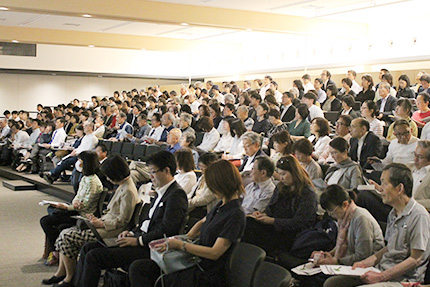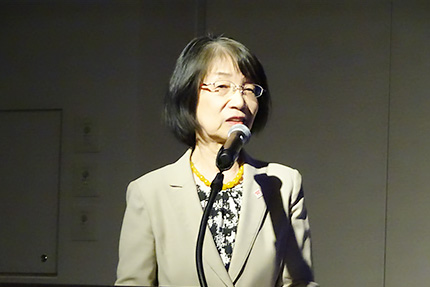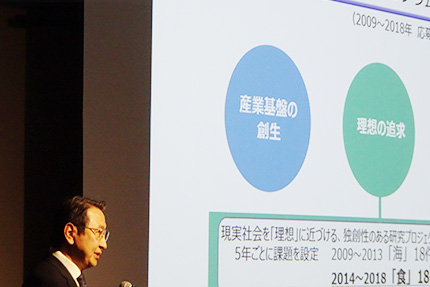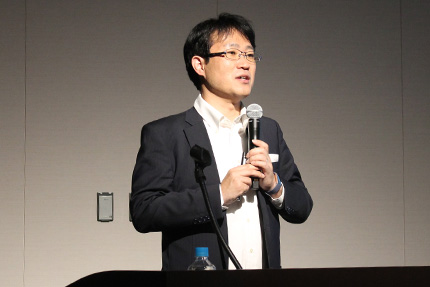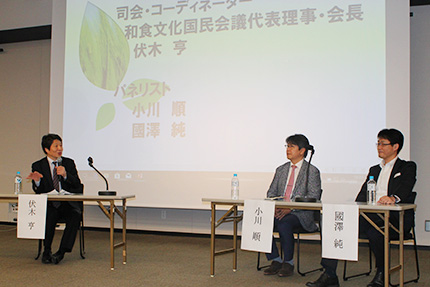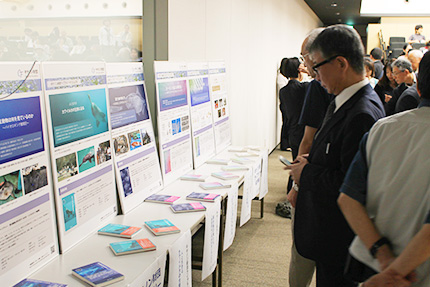HOME > Holding report of recent event > Canon Foundation hosts "Washoku and Health" symposium in Kansai for first time
Canon Foundation hosts "Washoku and Health" symposium in Kansai for first time

On May 23, a joint symposium by the Canon Foundation and Washoku Japan (the General Incorporated Association of Japanese Food Culture) entitled "Washoku and Health: Thinking About Smart 'Food' through Intestinal Bacteria and Microbes" was heled at the Kyoto Sangyo Kaikan Hall in Kyoto City.
This is the third symposium for outside participants held for the purpose of communicating the results of leading-edge research to a general audience in an easy-to-understand manner, and is the first such lecture to be held in the Kansai region.
The symposium successfully attracted a number of applications to attend that exceeded capacity by such a large degree that provisional seating had to be added at the last minute on the day of the symposium.
The symposium began with a message from Yoko Ōkubo, Chairman of the Investigation and Research Subcommittee under Washoku Japan. This was followed by a summary description of the Canon Foundation and an introduction of its initiatives geared towards the research of "food" by Canon Foundation Secretary General Tetsuro Hoshino.
Next, two Canon Foundation-funded researchers active on the frontline of intestinal bacteria research announced their most recent findings. Based on the subject of "visiting old and learning new knowledge on microbes and food: fermentation and intestinal bacteria that form food functions," Kyoto University Professor Jun Ogawa gave a lecture centered on an explanation of how metabolism akin to fermentation is also conducted by intestinal bacteria, and how that metabolism influences human health.
Jun Kunisawa, Director of the Center for Vaccine and Adjuvant Research at the National Institutes of Biomedical Innovation, Health and Nutrition, gave a lecture on the relationship between intestinal bacteria and illness and on attempts to improve body constitution through the application of that bacteria in meals based on the theme "the unseen relationship between food and intestinal bacteria and the future of health."
In the panel discussion moderated by Washoku Japan Representative Director Tōru Fushiki, both research presenters took the stage to conduct an easy-to-understand exchange on the relationship that intestinal bacteria and fermented food products have with Japanese food while also touching on their relevance with dementia.
Going forward, the Canon Foundation will continue to regularly hold symposiums by its funded researchers for outside participants.


